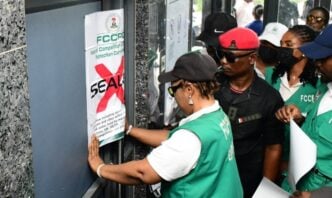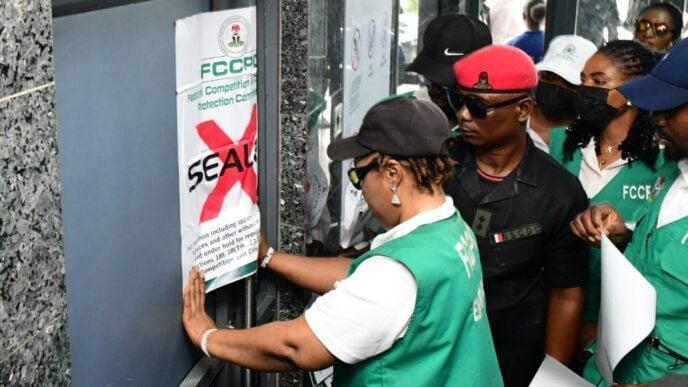The court of appeal sitting in Lagos has overturned a 2014 judgment of the federal high court in a case between RCN Networks Ltd and Guaranty Trust Bank Plc.
The federal high court ruling in 2014 had led to the foreclosure by GTBank of a 44-room mansion valued at N30 billion owned by Agboola Abiola, one of the sons of the late MKO Abiola.
Agboola and RCN Networks Ltd challenged the judgment at the court of appeal in CA/L/888/2014.
The main contentions were that the company, as a borrower, signed a deed of tripartite legal mortgage alongside GTB, the respondent.
Advertisement
However, the second appellant, Agboola, denied signing the legal document, claiming instead that the execution page bearing his signature was from a different document and was fraudulently attached to the deed of tripartite legal mortgage to include his assets as part of the loan security.
Delivering judgment on Wednesday, a three-member panel of the appellate court unanimously held that the trial court had ignored glaring discrepancies in the tripartite deed of legal mortgage registered by the bank at the Lagos state land registry against the said property.
The appellate court held that the discrepancies made the tripartite legal mortgage document deficient and incapable of conferring any legal rights on the bank to foreclose on the property.
Advertisement
“Now the lower court, for some reason, elected to gloss over these alleged alterations and amendments, which even the police alluded to, and proceeded to restrict itself to the interpretation of clause 6 of the deed,” Paul Bassi, the lead justice, held.
“Where the authenticity of the deed or document as a whole is called into question, can the court interpret this document and make a pronouncement of the rights of the parties? I think not.
“It is incumbent on the court to be satisfied that the deed or document sought to be interpreted is accepted by the parties as that creating the rights and obligations of the parties.
“Again, a court cannot proceed to make a determination of rights of parties on a contested deed or document, especially one tainted with allegations of fraud or forgery. The court cannot fill in the gaps in establishing authenticity or the fraud by itself. That would be proceeding on a faulty premise.
Advertisement
“At this point, the obvious conclusion is that the lower court was in error to have determined the rights of the parties on a contentious document that was allegedly a forgery. This court cannot endorse the decision of the lower court on this basis. I therefore resolve this issue in favour of the appellants.
“I therefore allow the appeal and set aside the judgment of the federal high court, Lagos division delivered on the 20th day of June 2014, in suit no: FHC/L/CS/876/2013.”
The appellant was represented by Charles Adeogun-Phillips, while the respondent was represented by Norrison Quakers.
Advertisement










